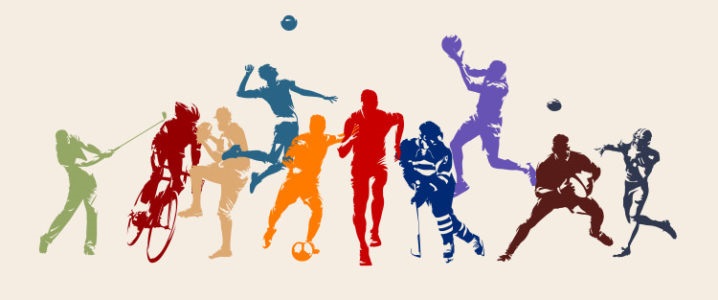Sporting governance is the backbone of any successful sporting nation. It encompasses the rules, regulations, and structures that govern sports at various levels, from the grassroots to the elite. In Nigeria, a country with immense sporting talent and passion, the landscape of sporting governance has faced its share of challenges and reforms. In this article, we will delve into the complexities of Nigeria’s sporting governance, highlighting the hurdles it faces and the reforms to improve the system. Before we explore these intricacies, let’s briefly touch on the role of understanding how to play NairaBet and win, which has become an integral part of Nigeria’s sports culture.
The Role of NairaBet: Beyond Betting
Understanding how to play NairaBet and win has become a significant aspect of Nigerian sports culture. NairaBet is one of the country’s leading sports betting platforms, allowing fans to engage with their favorite sports uniquely. While sports betting adds an extra layer of excitement to the games, it also generates revenue that can be channeled back into the development of Nigerian sports.
The revenues generated from platforms like NairaBet can potentially address funding gaps in sporting infrastructure, talent development, and grassroots initiatives. However, to ensure the responsible growth of sports betting, effective governance is essential to regulate the industry and ensure its positive impact on Nigerian sports.
Challenges in Sporting Governance
Nigeria’s sporting governance has faced several challenges over the years, hindering its ability to harness its sporting potential fully. Some of these challenges include:
- Lack of Transparency: Transparency is a cornerstone of effective governance, and the lack thereof has been a recurring issue in Nigerian sports. Financial mismanagement, opaque decision-making processes, and a lack of accountability have eroded trust in sporting organizations.
- Funding Shortages: Adequate funding is crucial for the development of sports in Nigeria. While the government allocates funds to sports, there has been a history of misappropriation and inadequate budgetary allocations, impacting the growth of sports at all levels.
- Infrastructure Deficiency: Sporting facilities and infrastructure in Nigeria often need to catch up to international standards. The lack of world-class facilities impedes athlete development and major sporting events hosting.
- Bureaucracy and Inefficiency: Sporting organizations in Nigeria have been criticized for bureaucratic inefficiencies, which can slow down decision-making processes and hinder the timely execution of initiatives.
- Inadequate Talent Identification and Development: While Nigeria is blessed with abundant sporting talent, there needs to be more systematic talent identification and development programs. Many potential stars still need to be discovered or developed.
- Ethics and Integrity: Instances of corruption, unethical conduct, and doping scandals have marred the reputation of Nigerian sports, undermining the values of fair play and integrity.
Reforms and Path to Improvement
Recognizing the need for change, Nigerian sports authorities and stakeholders have initiated several reforms aimed at addressing these challenges and improving sporting governance:
- Transparency Measures: Sporting organizations are taking steps to improve transparency and accountability. This includes financial audits, open governance processes, and more robust reporting mechanisms.
- Funding Allocation: Advocates for Nigerian sports have been pushing for increased funding, more efficient resource allocation, and establishing a sports fund to ensure sustained financial support for athletes and development programs.
- Infrastructure Development: Investments in modern sporting facilities are underway to enhance training and competition opportunities for athletes. The construction and renovation of stadiums and training centers are part of this effort.
- Streamlined Bureaucracy: Reforms are being introduced to streamline administrative processes and reduce bureaucratic obstacles. This includes reviewing organizational structures to ensure greater efficiency.
- Talent Identification and Development: National sports bodies are strongly emphasizing talent identification and development programs, particularly at the grassroots level. Initiatives to scout and nurture young talent are being expanded.
- Ethics and Integrity: Efforts to promote ethics and integrity in Nigerian sports include implementing anti-corruption measures, strict adherence to anti-doping regulations, and awareness campaigns to uphold the values of fair play.
The Way Forward
Nigeria’s sporting governance is at a critical juncture. While challenges persist, the commitment to reform and improve the system is evident. The role of platforms like NairaBet in generating revenue for sports development cannot be underestimated, and it should go hand in hand with responsible governance.
To fully realize its sporting potential, Nigeria must prioritize effective governance, transparency, and accountability. A collaborative approach involving government bodies, sporting organizations, athletes, and the private sector is crucial to driving meaningful change.
Conclusion
The goal is to create an environment that nurtures Nigerian athletes and reflects the nation’s potential. By addressing the challenges in sporting governance and embracing meaningful reforms, Nigeria can aspire to new heights in the world of sports and provide its athletes with the opportunities they deserve.



Leave a Reply